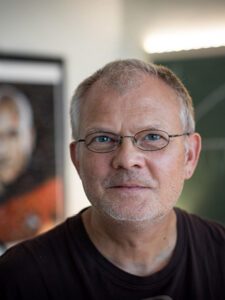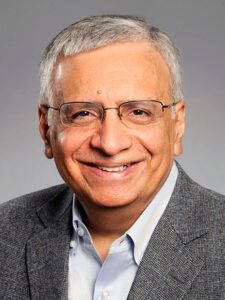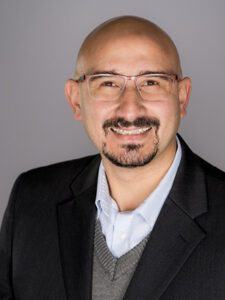Session 5: Cellular & Molecular Correlates of Protection & Pathogenicity
Chairs: Alexander Scheffold, Carsten Watzl
09:00 – 09:25 Andreas Thiel
09:25 – 09:50 Rafi Ahmed
09:50 – 10:15 Ali Ellebedy
10:15 – 10:40 Anne Puel
 Andreas Thiel
Andreas Thiel
Berlin Institute of Health at Charité (BIH), Berlin, Germany
The Rise and Fall of „The Division of Labor Paradigm“
 Rafi Ahmed
Rafi Ahmed
Emory University School of Medicine in Atlanta, Georgia, USA
CD8 T Cell Lifestyle during Chronic Viral Infection and Cancer
Biosketch
Dr. Rafi Ahmed is Director of the Emory Vaccine Center at Emory University School of Medicine in Atlanta, GA and a Georgia Research Alliance Eminent Scholar. His research efforts are directed towards:1. Understanding the mechanisms of immunological memory and using this knowledge to develop new and more effective vaccines. 2. Defining the mechanisms of T cell exhaustion and developing effective immunotherapy for treatment of cancer and chronic viral infections. Dr. Ahmed is a member of the National Academy of Sciences, the National Academy of Medicine, the National Academy of Inventors, and the American Academy of Arts and Sciences.
 Ali H. Ellebedy
Ali H. Ellebedy
Washington University School of Medicine, Missouri, USA
Germinal Center B cell Responses to Vaccination: Lessons from the SARS-CoV-2 Pandemic
A successful B cell response to vaccination results in high and persistent potently and broadly neutralizing antibodies. After vaccination, responding B cells may differentiate along the extrafollicular path, which leads to the production of short-lived plasmablasts, or along the germinal center (GC) route, which leads to the generation of long-lived plasma cells and memory B cells. GCs are the primary site of affinity maturation, the process whereby the binding affinity of induced antibodies to vaccine antigens increases with time after vaccination. We have recently shown that vaccination against influenza viruses and SARS-CoV-2 in humans can elicit a GC reaction that engages pre-existing memory B cell clones and de novo ones that can target new epitopes, broadening the spectrum of vaccine-induced protective antibodies. These findings raised the following important questions: (1) What are the dynamics of vaccine-induced GC B cell responses in humans? (2) Do responding GC B cells accumulate somatic hypermutations (SHM) after vaccination? (3) What are the functional consequences of affinity maturation? (4) Do persistent GC reactions result in long-lived bone marrow plasma cells? (5) Can a GC reaction be remounted upon repeat vaccination? These are some of the questions I will discuss in my presentation.
Biosketch
Ali H. Ellebedy, Ph.D.
Leo Loeb Professor, Department of Pathology and Immunology, Washington University School of Medicine. Ali Ellebedy is a viral immunologist, with 16 years of experience studying B cell responses to viral infections and vaccination. He was born in Egypt and graduated with a B.S. in pharmaceutical sciences from Cairo University in 2004. In 2006, he moved to the US where he studied innate and adaptive immune responses to influenza viruses at St Jude Children’s Research Hospital in Memphis, TN for his Ph.D. He then moved to Emory University in Atlanta, GA, where he was a postdoctoral fellow in the laboratory of Rafi Ahmed studying human B cell responses to viruses. In 2017, Ali joined the Department of Pathology and Immunology at Washington University School of Medicine in St. Louis as an Assistant Professor. His team studies the factors dictating the breadth and durability of antibody responses to viral infections and vaccinations in humans. They discovered a new class of broadly protective human anti-influenza virus antibodies. In response to the SARS-CoV-2 pandemic, his team published seminal studies defining the breadth and persistence of humoral immune responses to SARS-CoV-2 infection and vaccination in humans. He is a tenured professor and co-director of the Center for Vaccines and Immunity to Microbial Pathogens.
Anne Puel
Paris, France
Immunity autoimmunity
